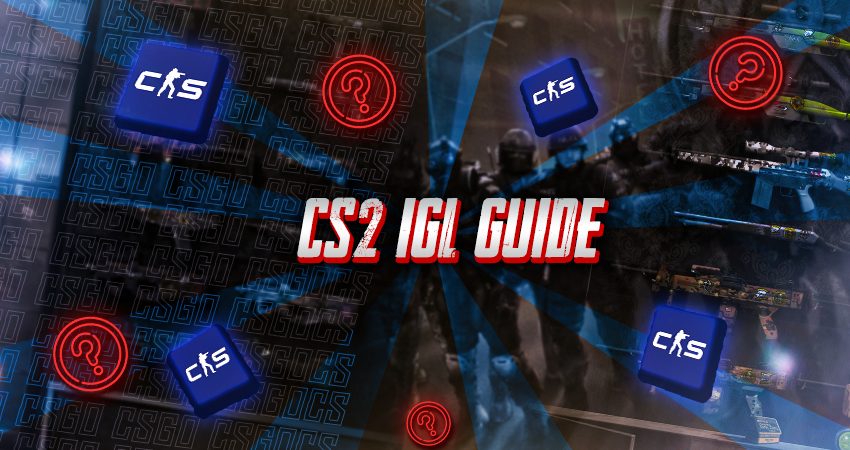79tka Insights
Your go-to source for the latest news and information.
CS2 IGL Role: Where Strategy Meets Chaos
Uncover the secrets of the CS2 IGL role, where strategic brilliance collides with chaotic gameplay. Elevate your game now!
Mastering the CS2 IGL Role: Essential Strategies for Success
To truly excel as an IGL (In-Game Leader) in CS2, understanding the fundamentals of strategy and communication is crucial. An effective IGL must not only possess a solid grasp of the game mechanics but also be able to read the flow of the match. One essential strategy is to maintain constant communication with your team, ensuring that everyone is on the same page regarding tactics and movements. Employing methods like pre-planned strategies, adaptable responses to enemy plays, and in-game adjustments can make a significant difference in your team's performance.
Another key aspect of mastering the CS2 IGL role is fostering a strong team dynamic. Here are a few strategies to achieve this:
- Encourage Open Communication: Create an environment where players feel comfortable sharing ideas and feedback.
- Build Trust: Support your teammates and give them the freedom to make plays.
- Analyze Together: Review gameplay after matches to identify strengths and areas for improvement.
By implementing these strategies, you can establish your credibility as an IGL and enhance your team's synergy, ultimately leading to better outcomes in CS2 matches.

Counter-Strike is a popular series of first-person shooter games that pits teams of terrorists against counter-terrorists. Players engage in various game modes, and mastering the game requires skill, strategy, and teamwork. If you ever find yourself making a mistake in the game, remember to kick yourself out of a tough situation and keep improving!
Common Challenges Faced by CS2 IGLs and How to Overcome Them
Being an In-Game Leader (IGL) in CS2 comes with its own set of challenges that can impact team performance and cohesion. One of the most common issues IGLs face is communication. Ensuring that all team members are on the same page during high-pressure situations can be difficult, especially when there are different languages or playing styles involved. Additionally, making quick decisions on tactics can result in disagreements among teammates, leading to frustration and a lack of trust. To overcome these hurdles, it's essential for IGLs to establish clear communication protocols, perhaps even implementing pre-defined callouts or strategies that everyone understands. Regular team meetings and practice sessions can also foster better camaraderie, making it easier to collaborate under pressure.
Another significant challenge is adapting to the meta and evolving strategies. As the game and its community progress, IGLs must stay informed about patch notes, updates, and shifts in gameplay that could affect their team's performance. The inability to quickly adapt can leave a team vulnerable against opponents who are more in tune with the game's current dynamics. IGLs can tackle this challenge by dedicating time to research, watching professional games, and engaging with the community to learn the latest tactics and strategies. Implementing a feedback loop within the team, where players can discuss what works and what doesn’t, can also facilitate a more agile approach to adapting game plans in real-time, ultimately benefiting the team's competitive edge.
How to Develop Effective Communication Skills as a CS2 IGL
As a CS2 IGL (In-Game Leader), developing effective communication skills is crucial for orchestrating your team's strategies and ensuring coherent gameplay. Start by establishing a foundation of trust and openness within your squad. Regular team meetings can be beneficial; during these sessions, encourage players to express their thoughts and opinions without fear of criticism. This not only enhances your team's morale but also cultivates a culture where everyone feels valued, leading to more productive discussions.
Another key aspect of effective communication as a CS2 IGL is mastering the use of callouts and tactical jargon. Make sure that all team members are familiar with the maps and can provide precise information during matches. Practice using clear and concise language during intense moments, as this reduces the chances of misunderstandings. Consider employing tools such as team chat or voice communication platforms to facilitate smoother interactions. By honing these skills, you will significantly improve your team's overall coordination and performance.